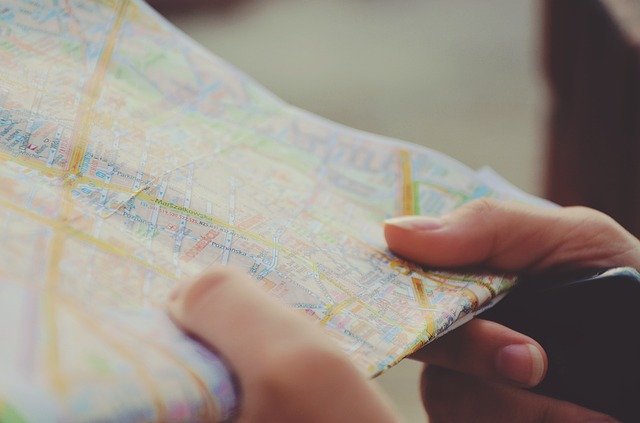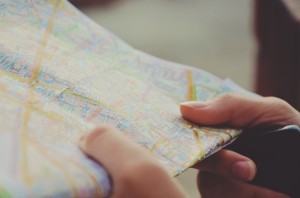
Contributor: Richard Anderson, author “From Darkness to Light: A Primer for Recovery”
 The Basic Text tells us in the chapter on the first step that “Our inability to control our usage of drugs was a symptom of the disease of addiction. We are powerless not only over drugs, but over our addiction as well. We need to admit this fact in order to recover.
The Basic Text tells us in the chapter on the first step that “Our inability to control our usage of drugs was a symptom of the disease of addiction. We are powerless not only over drugs, but over our addiction as well. We need to admit this fact in order to recover.
If I have a cold and I take medications to control the symptoms such as fever, runny nose, sore throat, etc., does that mean I no longer have a cold? In the same light we see the disease of addiction manifesting symptoms. Using drugs is one symptom of the disease of addiction, but that isn’t what addiction is.
Admit What?
We are told that we need to admit this fact in order to recover. Admit what? Admit that using is only the most noticeable aspect of addiction. In fact a strong case can be made that it wasn’t drugs necessarily that turned us into addicts, rather it was being an addict that turned us on to drugs.
Addiction, at its core, can often readily be seen throughout the life experience of the addict well before they ever picked up a chemical. Once we found drugs we thought we had found that one aspect of our lives, the missing piece of the puzzle, that we had been searching for throughout our lives.
What Is "Recovering"?
 If we put the drugs down but begin gambling compulsively can we still be said to be “recovering”? The Text would indicate “no”. If we get clean but find ourselves compulsively viewing pornography all night and cruising the internet for sex, are we really recovering?
If we put the drugs down but begin gambling compulsively can we still be said to be “recovering”? The Text would indicate “no”. If we get clean but find ourselves compulsively viewing pornography all night and cruising the internet for sex, are we really recovering?
If our marriage falls apart because we have secretly spent enormous amounts of money on new clothes and shoes on the internet, or we have been sexually promiscuous are we still then recovering? No.
A Real Internal Change
Recovery from addiction involves far more than simply not using drugs. Real recovery is born of real change internally. It isn’t a matter of having a job, buying a new car, paying our bills, staying out of jail, and paying taxes. Although these things are only possible if we can stay clean, recovery involves far more than simple abstinence from drugs.
The Basic Text tells us in the chapter on the first step that “Becoming employed, socially acceptable and reunited with our families does not make our lives manageable. Social acceptability does not equal recovery.”
Knowing Your Powerlessness
When I was using I knew, deep down, that I was powerless. Understanding in a rudimentary way that I had absolutely no control did nothing to empower me to change anything. On payday I would cash my check and stop to fill up my gas tank with gas and purchase a carton of cigarettes before I did anything else.
Why? Simply because I knew without hesitation that once I got started I would not be able to stop until every last dime was gone. If I didn’t stop to get cigarettes and gas first I would not have those things come Monday morning.
Protecting the Addiction
 I understood also that once the money ran out I was liable to do any number or manner of things in order to get more. I would lie, steal, cheat, or do whatever I had to do to get more. I was proud of none of these things, but the nature of powerlessness and the component of compulsion precludes choices once the disease is in full bloom.
I understood also that once the money ran out I was liable to do any number or manner of things in order to get more. I would lie, steal, cheat, or do whatever I had to do to get more. I was proud of none of these things, but the nature of powerlessness and the component of compulsion precludes choices once the disease is in full bloom.
There was no alternative for me but to use and to do those things necessary to protect my addiction. In essence I was protecting the one thing that made me feel okay; the thing that filled the void inside me even for a moment. I was trying over and over again to “recapture the ease and comfort” I once knew. Whatever price I had to pay in order to get back to the ease and comfort was seldom too much to ask.
Overridden By the Disease of Addiction
Again, using does not occur in a vacuum. There are a variety of things that we must do in order to perpetuate our using. We must push others away that might interfere with our using; anger and hostility are some of our chief tools for this. We must acquire money or some means by which we can get more drugs.
This might mean stealing or even selling ourselves. Even when, deep down, we really didn’t want to do such degrading things to ourselves, we were overridden by the irresistible force of our disease. The Basic Text of Narcotics Anonymous describes the disease of addiction as “…a destructive power greater than ourselves.” It is absolutely overwhelming and irresistible.
It leaves us without choices. It informs our motives, decisions and behaviors, dictating the destructive course of our lives.
Acting Against Our Will
 Again, powerlessness means not only using against our will but it also means acting against our will. The result is personal degradation, a lowering of our self-esteem with each act, and a devastation of our spirit as we descend further into hopelessness and despair. One might say that hopelessness is the anti-principle of step one.
Again, powerlessness means not only using against our will but it also means acting against our will. The result is personal degradation, a lowering of our self-esteem with each act, and a devastation of our spirit as we descend further into hopelessness and despair. One might say that hopelessness is the anti-principle of step one.
True unmanageability is the devastation of our spirit and the utter abandonment of self-esteem. Our unmanageability is internal. It is emotional, mental and spiritual in nature. Understanding this fact is vitally important. If we view unmanageability solely by outside appearances, we set ourselves up to miss the point of recovery.
Yes, legal consequences, shattered families, joblessness and the like are outward manifestations of an unmanageable life, but if we focus only on those things, then having those same things mended in our lives therefore equals recovery. Many addicts are dead as a result of that mistaken assumption.
Filling the Void Inside Ourselves
Recovery, real recovery, involves filling the void inside ourselves that nothing could ever fill. It is an awakening of our spirit, a realignment or reawakening of our values and learning to live in a way through which we can learn to value, love and respect ourselves, perhaps for the first time in our lives.
Thus, recovery has nothing to do with the appeal of our significant other, the car we drive, the home we live in or the size of our bank accounts.
The Power Greater Than Ourselves
 The first step leaves us with a void in our lives. If we cannot do it ourselves; if there is no way for us to get clean on our own, what do we do then? The second step says “We came to believe that a power greater than ourselves could restore us to sanity”.
The first step leaves us with a void in our lives. If we cannot do it ourselves; if there is no way for us to get clean on our own, what do we do then? The second step says “We came to believe that a power greater than ourselves could restore us to sanity”.
It is this power that we allow to work in our lives. It is this power that removes from us the obsession to use. It is upon this power that we build the foundation of our recovery.
Hope, belief and the second step are discussed in great detail in my article on the second step and in the recovery workbook “From Darkness to Light: A Primer for Recovery” available at www.recoveryresourcesinc.com.
Community Discussion – Share your thoughts here!
What steps did you take to gain back the control over addiction in your life? What advice do you have to share with others?
The opinions and views of our guest contributors are shared to provide a broad perspective of addiction. These are not necessarily the views of Addiction Hope, but an effort to offer discussion of various issues by different concerned individuals.
Last Updated & Reviewed By: Jacquelyn Ekern, MS, LPC on March 31st, 2015
Published on AddictionHope.com
